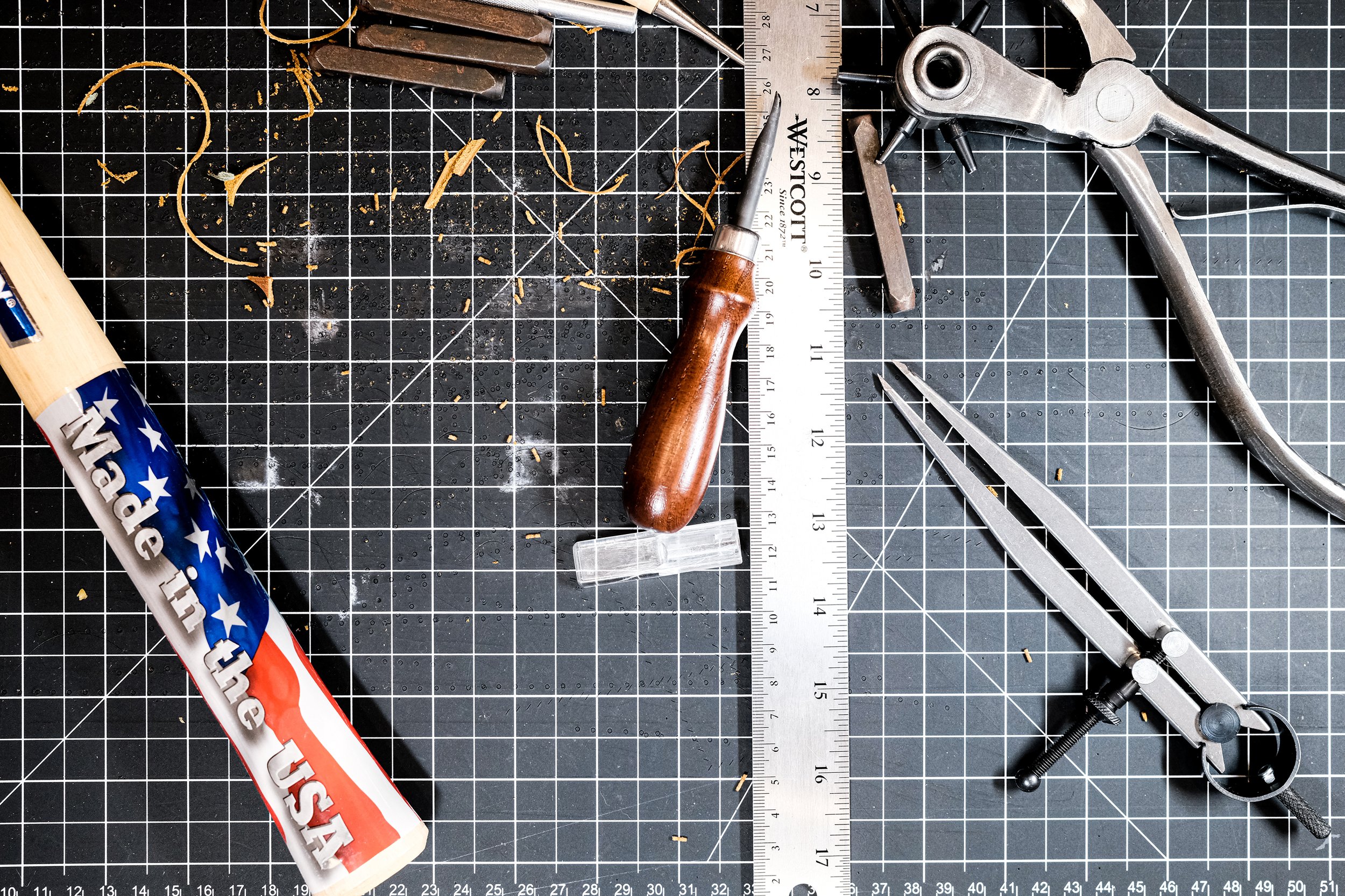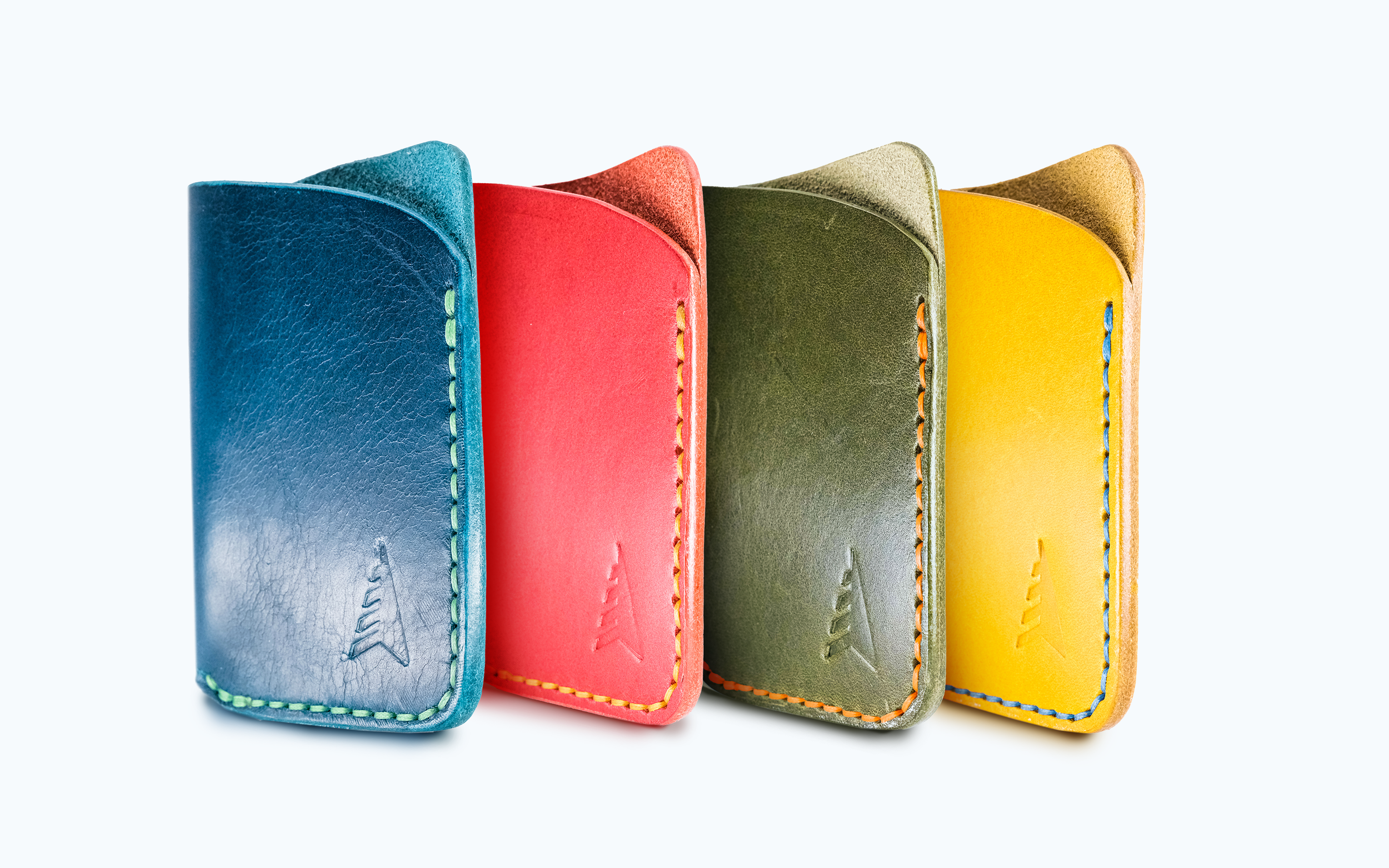
Hi,
I’m Jesse.
I make things
out of leather.

Shell Cordovan
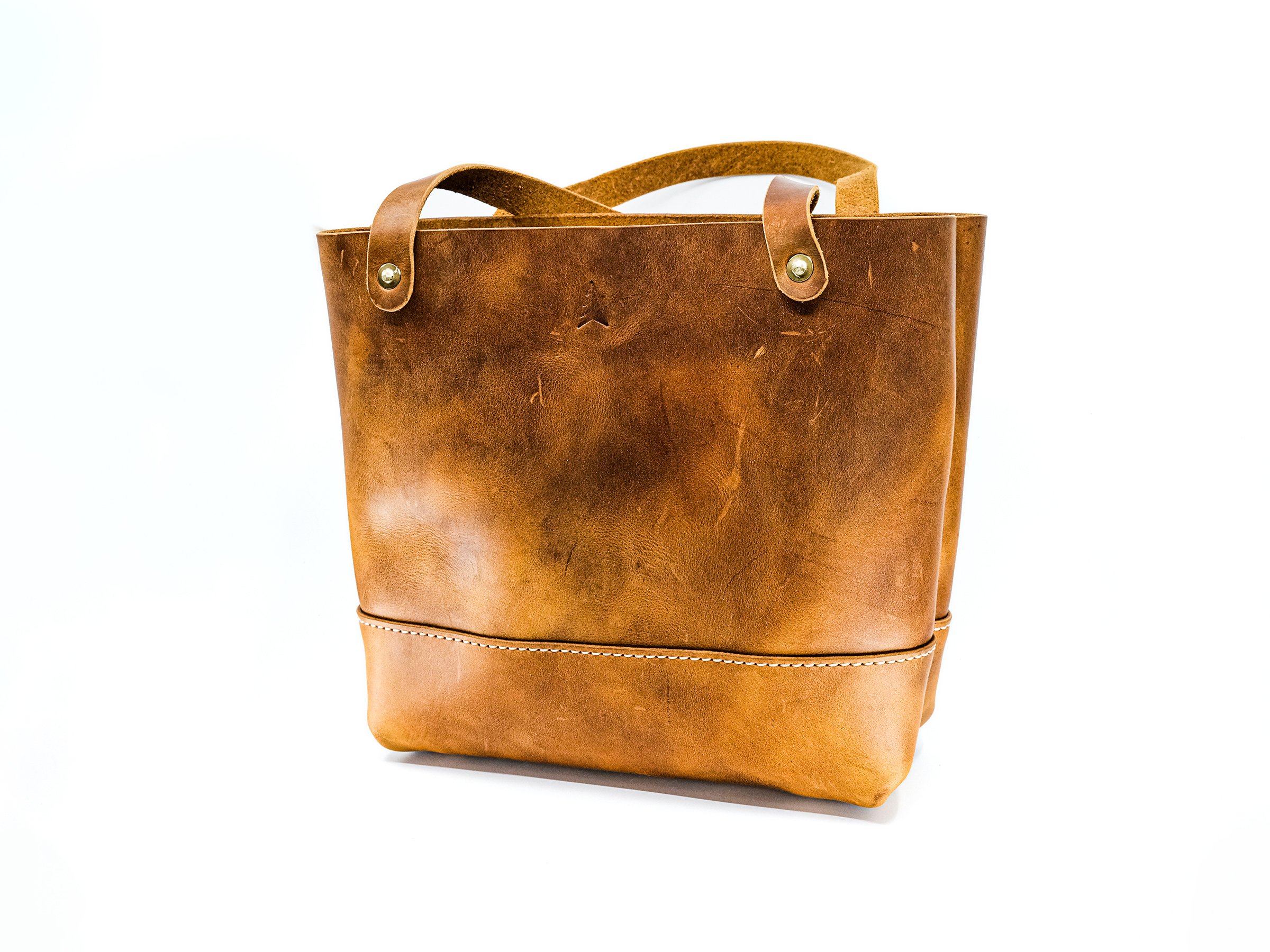
Handbags
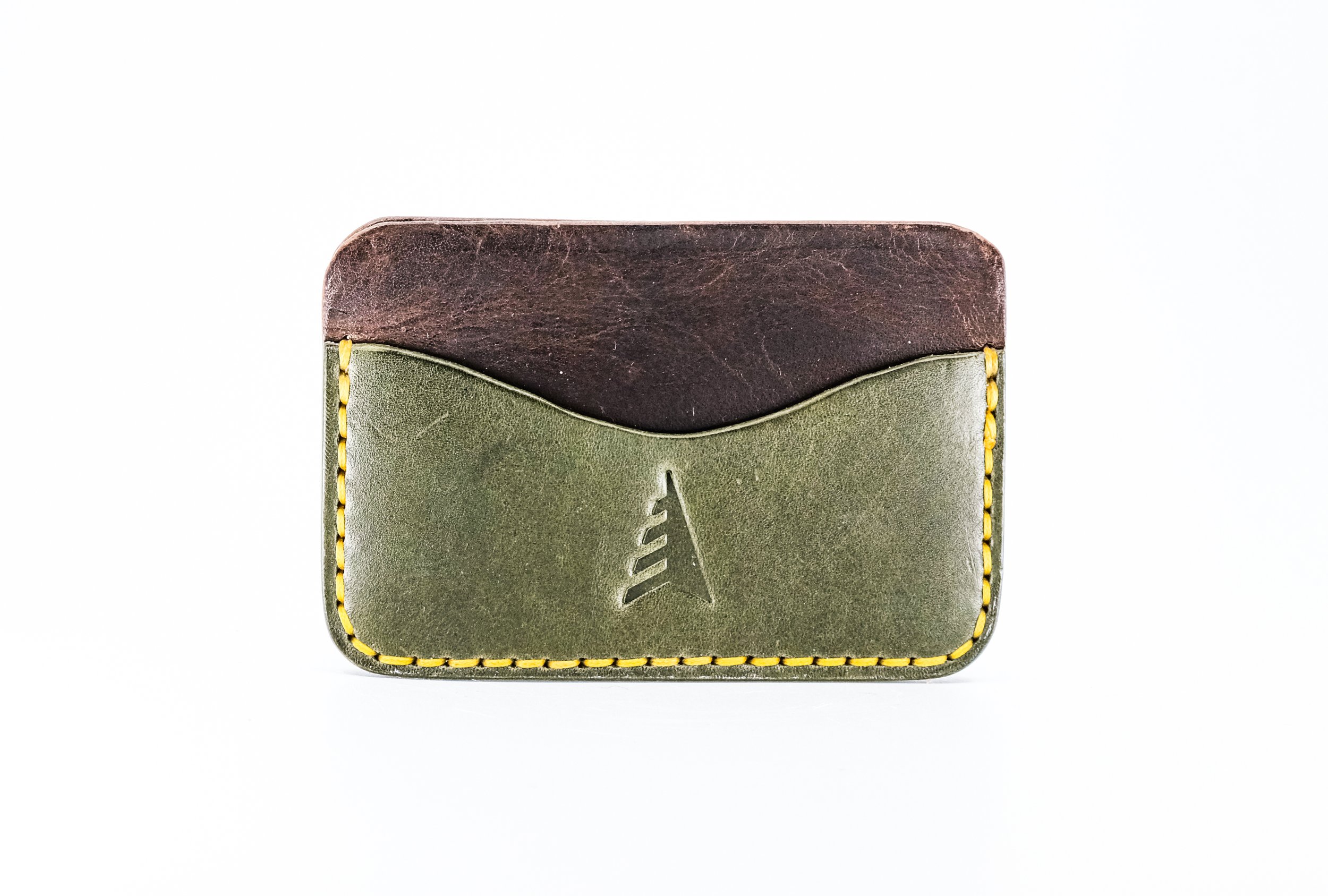
Wallets & Card Cases
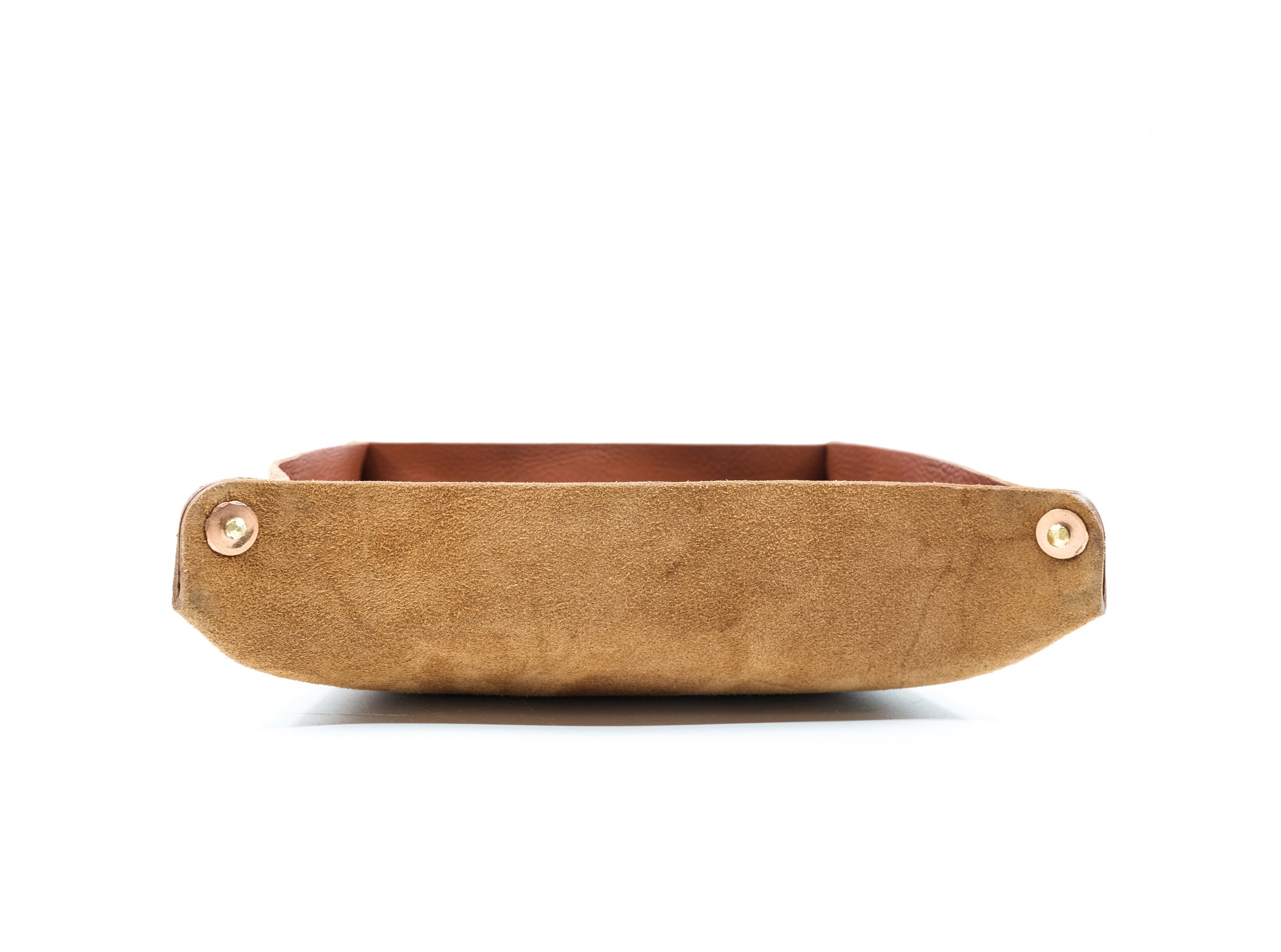
Valet Trays & Personal Items
Better leather makes
better stuff.
Good leather satisfies all the senses. Except (probably) taste. I choose the best vegetable & combination tanned leathers from around the world because I want you to stare at it, smell it, rub it all over your face…
get weird.
Made by human
I’m drawn to making things with my hands and obsessing over details. There are more efficient ways to make things. But there’s something intangible about knowing someone paid attention to every single stitch
and that creates a connection between you and me.
I like that.
A little about the leather
Vegetable Tanned
Only about 10% of leather is vegetable tanned. The labor-intensive process has been done for thousands of years and uses tree barks to create durability that’s unmatched. When you think of that amazing leather smell, you’re thinking of veg tanned leather. This leather darkens and patinas beautifully over time, giving each piece a unique look.
Combination Tanned
The combination tanned leathers I choose start with a chrome tan followed by a heavy vegetable re-tan. This offers the benefits of vegetable tanning while also providing some resistance and, in some cases, a softer temper that doesn’t require as much break-in.
Shell Cordovan
Highly-prized, this vegetable tanned leather is actually a membrane under the skin of the hind quarters of a horse. Each horse only has 2 “shells” making it extremely rare and, unfortunately, very expensive.
